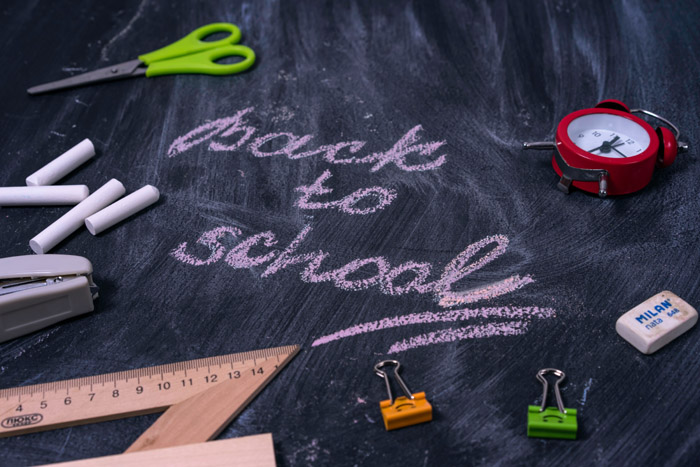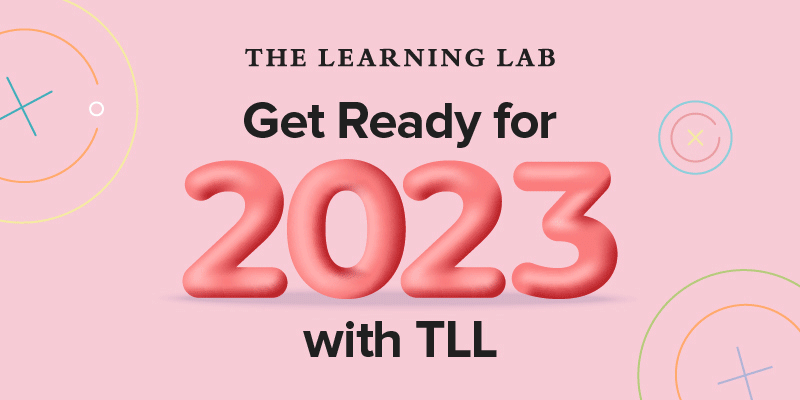The Secret to School Success: 5 Back-to-School Habits that Every Child Needs
Submitted by Advertiser KiasuParent

When should a child start preparing for the new school year?
After the school holidays, many children dread the thought of returning to school — and this is normal. To ease the back-to-school blues, parents can offer a different perspective of the upcoming school year. For instance, you can talk about the positive aspects of school, such as favourite friends and teachers, as well as activities that your child loves. More importantly, do remind your child that the new year is a chance to start afresh, by developing good habits for learning.
Here are five habits that The Learning Lab (TLL) considers essential for school success.
#1 Don’t Wait Till January to Start Work
As TLL teachers have observed, students who are not engaged in learning activities during their term break tend to take longer to restart their engines when school reopens. In particular, the December holidays involve a six-week break, so the readjustment in January can feel much more challenging.
To prepare your child for the new year, TLL recommends keeping your child mentally stimulated during the holidays by encouraging them to pick up a new hobby or watch meaningful movies and read books. Click on the links here to access the list of books and movies TLL has curated for your child this holiday.
This is also why TLL begins each academic term early, to give children a head start in gearing up for the new school term. However, it’s not all work and no play, as fun elements are weaved into TLL’s holiday classes — for instance, lower primary children write emails to their pets and upper primary students learn to write a travelogue.
#2 Self-Reflect to Spot Learning Gaps
Apart from establishing a work routine, December is also the time to help your child take stock of the school year and to identify areas that need improvement. Some questions that you can ask to direct your child as they go through this process are:
- What do you think has gone well for you in school? What do you think you have done right?
- What do you find unpleasant or difficult about school? Could you tell me more? Is there a resource that you need, or could someone help you with this?
- If you could choose just one thing to improve on, what would it be? Can you list a few things that must be done, in order to make this improvement happen?
If your child needs expert help with a particular subject, TLL is here to offer the right support, so that your child can achieve academic excellence.
At TLL, programmes are available for students from the time they enter preschool, all the way till junior college. From foundational practice worksheets to critical-thinking questions, TLL provides an extensive pool of materials to suit every student’s unique learning needs, equipping them with problem-solving and higher-order thinking skills, and above all, a love for learning.
#3 Set Meaningful Learning Goals
It’s easy to set a goal such as “I want to be great at playing the piano” — but this may not be a meaningful goal for your child. Why?
Firstly, being ‘great’ is not measurable. Secondly, there is no timeframe for this goal. Finally, the motivation behind the goal, as well as steps to achieve the goal, are not clearly stated.
In contrast, here’s what a specific and meaningful goal might look like:
“I want to learn how to play two pop songs on the piano, so that I can perform for the school concert next year. For this to happen, I must be able to play both songs fluently by April next year. From now till April, I will set aside one hour a day to practise playing both songs — I will most likely be able to do this after dinner every day.”
When you talk to your children about realistic goal setting, ask them:
- Why do you want to achieve this goal?
- Is there a deadline or timeframe?
- How will you know you have achieved this goal?
- What steps can you take to start working on this goal?
Need guidance for helping your child to set goals? Download TLL’s “New Year, New Goals” guide to use with your child.
#4 Ask Questions to Clear Doubts
Your child’s teachers are their best ‘study buddies.’ That’s why it’s important that your child is not afraid to ask questions and clarify doubts in class, especially when it has to do with mastering a new concept.
Here are some useful questions to ask in a classroom setting:
- Could you repeat what you just said?
- What does this word or term mean?
- I don’t know how to solve this problem. Could I have some help?
- I know this formula/concept, but I’m not sure how to use it to answer this question. Could you help me better understand how to tackle such questions?
- Can I ask you some questions about today’s lesson after class, or over email/text?
These are the types of questions that TLL teachers look forward to hearing. When students are honest about their learning needs, teachers can do much more to support them.
But what if your child doesn’t have the habit of asking questions? Home is the best place to start. Let your child see how you ask questions in daily life, and encourage your child to do the same at social gatherings. Be sure never to brush off your child’s question as being silly or irrelevant!
#5 Explore Learning Beyond the Classroom
Learning shouldn’t be confined to school subjects — do help your child to seek learning opportunities outside of school as well.
For children, brain teasers and board games are fun ways to build analytical skills, while books, videos, and podcasts can broaden their perspective of the world. When choosing weekend or holiday activities, look for fresh and meaningful experiences, such as taking part in NEA’s Clean Singapore Learning Trail or participating in NParks’s Intertidal Watch to gain awareness on marine biodiversity and conservation in Singapore.
At TLL, learning extends beyond the school curriculum — older students engage in lively debates on current topics and are encouraged to think of entrepreneurial solutions to the world’s problems, while younger students (such as preschoolers) work on posters to raise awareness on social and environmental issues.
Remember: the ultimate purpose of education is not to ace exams, but to continually discover the world around us, and make a positive difference where we can!
Make This Year the Best One Yet
With every new year comes new learning experiences for your child as he or she advances to the next academic level. TLL’s unparalleled curriculum, small class sizes and dedicated teachers empower your child to dream big, plan well, and accomplish great things.
This year, let us help your child reach his or her fullest potential, both in the classroom and beyond.
